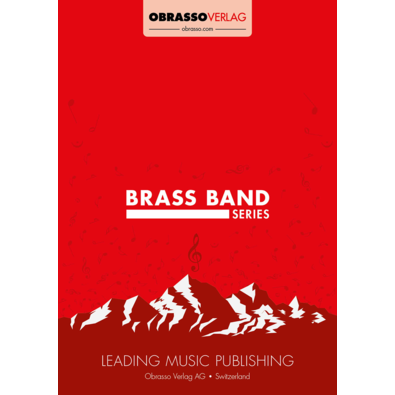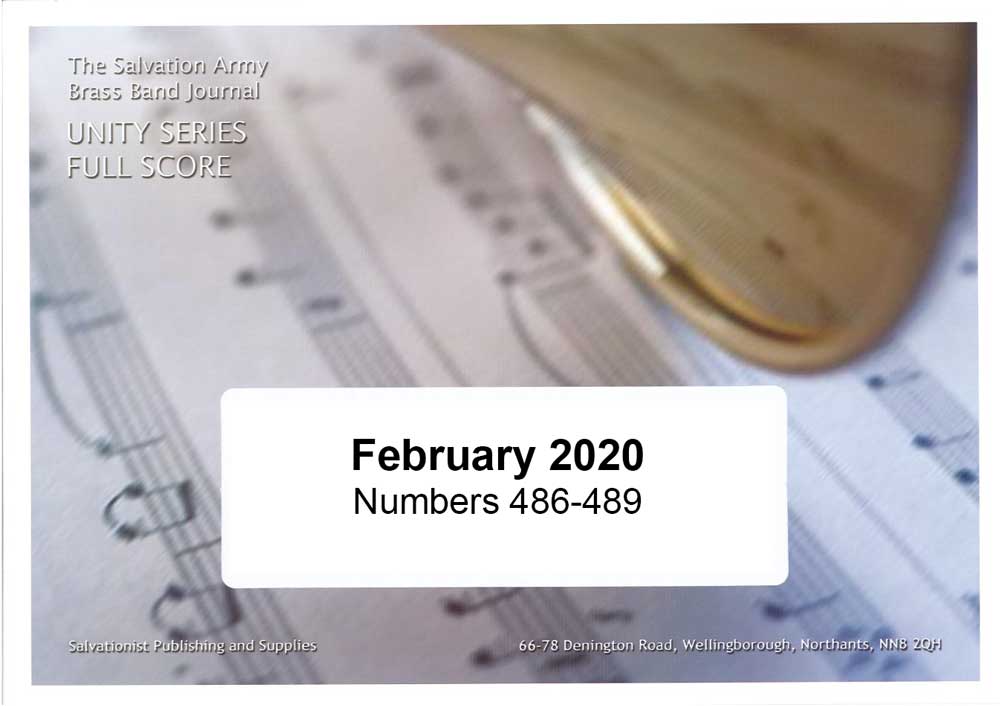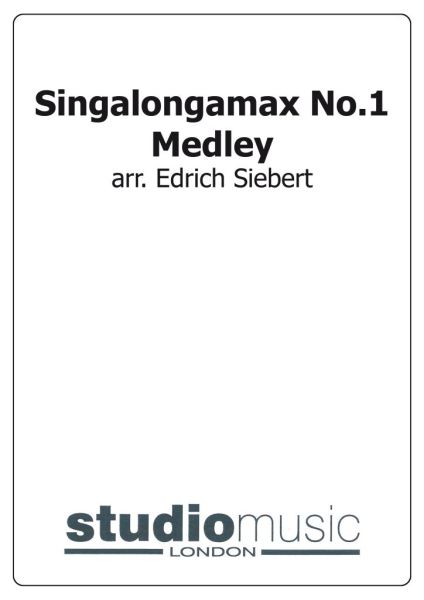Results
-
 £38.80
£38.80 -
 £54.20
£54.20Chum Aber's MAtteli - Traditional - Christoph Walter
Estimated dispatch 5-10 working days
-
£60.99
The Last Song - Ben Haemhouts
The Last Song is a beautiful and sad choral that begins very slowly and calmly. Gradually the instrumentation increases leading to a big climax. After this Grandioso ma con moto the instrumentation gets smaller and the piece comes to an end with the initial theme, but this time even slower than in the opening.
Estimated dispatch 5-14 working days
-
 £74.95
£74.95Aspects of Adiemus (Brass Band - Score and Parts) - Jenkins, Karl - Graham, Peter
Aspects of Adiemus is a collection from one of the world's most popular composers, Karl Jenkins. Adiemus, literally translated, means 'we will draw near' and represents a musical language which can be heard on five award winning albums from the composer.Since Adiemus has risen in popularity around the world, it has become a growing entity meaning many different things to many different people. Vocally, the spread of influence grows wider all the time, taking in Arabic and African sounds as well as Celtic and ecclesiastical ones. The percussion too has expanded using Indian, Middle Eastern, Japanese, Chinese and even Australian instrumentation.The evolving nature of Adiemus has meant that it has been difficult to categorise. New age, classical crossover, world music, even pop. Karl sees this as a good sign: To me, Adiemus transcends labels. The fact that it reaches people of different backgrounds, faiths and cultures gives it a universal appeal which is special. The compositions can be spiritual, religious, meditative - it's open to move people in any away they choose to experience.Ironically, the Adiemus project got off the ground initially due to a television commercial for an airline. Karl Jenkins explains, I'd been toying with a new idea, completely separate to my work in advertising, but at this time, Jenkins Ratledge were commissioned to come up with the music for an airline commercial. We presented the client with a demonstration tape of one of my completed compositions and they loved it.That composition became known as Adiemus. The music for the airline commercial was aired and immediately drew interest from the public. Karl: It's ironic that a piece of music not originally intended for a TV commercial should end up on a TV commercial, and that this music became the springboard for the success of the Adiemus project.Expertly arranged by Peter Graham, Aspects of Adiemus features the eponymous Adiemus, an uplifting and instantly recognisable opener. Chorale - Za Ma Ba and Chorale - Vocalise are songs of sanctuary, the latter featuring a chamber group from within the band. The vibrant Song of the Spirit is a cornet feature, and the finale, Song of the Plains combines intense rhythmic energy with tribal harmonies. Duration is variable depending on movement selection and optional cuts.Duration: 20.00
Estimated dispatch 7-14 working days
-
 £39.95
£39.95SINGALONGAMAX (Selection No.1) (Brass Band) - Siebert, Edrich
Includes: Who's Sorry Now?; Yes, Sir, That's My Baby; Ma! (He's Making Eyes at Me); Zip-a-Dee-Doo-Dah.
Estimated dispatch 7-14 working days
-
 £38.95
£38.95Unity Series Band Journal - Numbers 486 - 489, February 2020
486: March - Love Divine (Ian Clarke)This lively march features Charles Wesley's song, Love divine, all loves excelling (S.A.S.B. 262) set to the tune Stainer (T.B. 349) and Charles Gabriel's I stand amazed in the presence (S.A.S.B. 466).487: Song Arrangement - The potter's hand (Daniel Elson)A simple but effective arrangement of Dalene Zschech's popular worship song The potter's hand (S.A.S.B. 355).488: Ma-(cha-cha)-jesty (Gary Rose)The cha-cha-ch is a dance that originates from Cuba. It is danced to the music of the same name, introduced by Cuban composer and violinist Enrique Jorrin in the early 1950s. This work combines the cha-cha syle with the well-known song Majesty (S.A.S.B. 382).489: The old rugged cross (Andreas Holmlund)A flowing two-verse arrangement of George Bennard's much-loved song.
Estimated dispatch 7-14 working days
-
 £39.95
£39.95Singalongamax No.1 Medley
Includes: Who's Sorry Now?; Yes, Sir, That's My Baby; Ma! (He's Making Eyes at Me); Zip-a-Dee-Doo-Dah.
Estimated dispatch 7-14 working days
-
£123.00
Bewitched - Jack Keller - Bertrand Moren
Ma sorciere bien-aimee / Verliebt in eine Hexe
Estimated dispatch 7-14 working days
-
£87.00
Jesu, Joy Of Man's Desiring - Johann Sebastian Bach - John Glenesk Mortimer
Jesus bleibet meine Freude / O Jesus, que ma joie demeure
Estimated dispatch 7-14 working days
-
£68.00
Letter To My Mother - Rene Willener - Michal Worek
Lettre a ma Mere / Brief an meine Mutter
Estimated dispatch 7-14 working days
